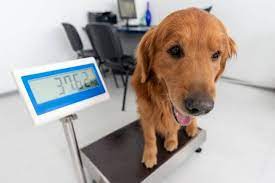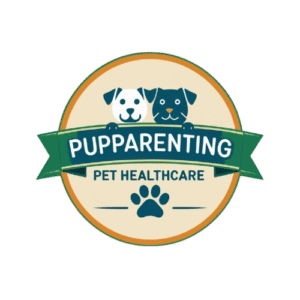Over the years I’ve met many older dogs in my practice, and while some naturally gain a little as they age, others begin to lose more than expected. Sometimes this weight loss is unexplained, and that can be related to serious underlying health problems. As pets undergo various changes, the impact on their weight becomes noticeable — a pressing issue that can make concerns arise for any dog owner. I recall one case at Morton where our vets worked with a senior patient whose loss happened so gradually that the family didn’t worry until the change was obvious. In another Woburn case, the vets recognized the issue early, knowing when to act can make all the difference.
I’ve also seen at North Providence, where our vets often tackle this issue head-on, that senior dogs usually worry their owners not by gaining but by losing steadily. While some tend to lose because of natural changes, others become concerned due to hidden illness. That’s why I always provide guidance on what to do and when to take action — especially if you might suspect something more than just the normal course of aging. Early awareness gives owners the power to act before the loss becomes too great.

Weight Affects Your Dog’s Health
I’ve cared for many senior dogs over the years, and I’ve seen how a few extra pounds can creep on as they age, but I’ve also watched some begin to lose more weight than expected. For an old friend, losing steadily can point to possible reasons that fall into different categories — from an underlying condition resulting from the aging process, to changes that happen naturally and lead to slimming down. One beloved companion I worked with had a slow loss that seemed harmless, but the results of a check-up showed an underlying health condition. That’s why I always remind owners that any shift in weight for senior dogs should never be overlooked.
In other situations, dogs gain weight over time, but certain events can lead to actual loss, sometimes alongside muscle reduction. If your dog is losing unexpectedly, it can raise concerns about the cause, which might indicate a significant problem. This could be the result of a disease, a shift in dietary needs, or an imbalance in the process of aging. I often explain that keeping the right balance is essential — the right food at the right time can prevent these shifts from becoming harmful. When I see a situation like this, I focus on finding the cause, checking both the condition and the signaling signs, and helping owners adjust their dog’s care to keep them healthy.
Older Dog’s Weight
As dogs age, they may gain weight at first, then suddenly begin to lose it instead, leaving owners wondering why their pet is losing size. From my experience, there are possible explanations — sometimes a subtle symptom of an underlying condition, indicating a larger health issue, and other times simply natural changes in diet requirements. Noticing these shifts early allows you to address the cause, whether it’s medical or lifestyle-related, so your senior companion stays as healthy as possible.
When Your Older Dog is Losing Weight
When your senior dog is losing weight, it can be a health concern that deserves immediate attention. There’s always a chance the loss is related to conditions like liver or gallbladder disease, dehydration, dental issues, kidney or heart problems, diabetes, cancer, or arthritis. Over the years, I’ve seen many cases where catching these early meant they could be diagnosed and addressed by a vet before they became severe. Acting early can avoid unnecessary decline in your pup’s overall well-being. Besides these, an underlying condition may only be clear if you notice subtle symptoms — so contact your vet for an appointment, monitor your pet closely, and carefully watch for changes.
From my own experience, a veterinarian can provide valuable insights by collecting details about the condition and identifying commonly associated signs. Sometimes the culprit is a potential illness, but other times it’s lifestyle-related. Different problems have different needs, so a vet will diagnose and address the root causes, looking for any additional clues accompanying the weight change. I once had a woburn case where a dog was shedding excess pounds, and because the owner took note and promptly brought the pet in for a thorough examination, we caught a common illness early. For elderly dogs, being examined regularly is important because weight changes are usually accompanied by other related symptoms. Always observe, inform your vet quicker rather than later, and be ready to act on whatever signs are present or follow.
Liver/gallbladder disease
- Lethargy
- Increased thirst
- Vomiting/diarrhea
- Fever
- Pain
- Pale or yellow gums
- Yellowing of skin/eyes
- Dehydration
- Dry gums
- Lethargy
- Sunken eyes
- Loss of skin elasticity
- Less urination
- Dark urine
Dental Issues
- Excessive drooling
- Difficulty eating/chewing
- Bad breath
- Swollen or bleeding gums
Kidney disease
- Increased thirst
- Excessive urination (may contain blood)
- Vomiting
- Loss of appetite
- Pale gums
- Lethargy
Heart disease
- A chronic cough
- Tires easily
- Exercise intolerance
- Excessive panting
- Irregular heartbeat
- Restlessness
Diabetes
- Excessive thirst
- Excessive urination
- Increased appetite
- Lethargy
- Repeated urinary tract infections
Cancer
- Lethargy
- Unusual bleeding
- Lumps, bumps, or swelling
- Distended abdomen
- Limping or lameness
- Unusual urination – frequency or amount
Arthritis
- Wobbling
- Lameness
- Scuffing the toes
- Incontinence
What To Feed an Old Dog That Is Losing Weight
If your vet rules out any underlying health concern causing your senior pup’s weight loss, it’s time to reconsider their dietary needs. I’ve seen many owners speak with their vet about the current diet and the amount of protein, fat, and fiber their dog is getting, only to discover small tweaks can make a big difference. A vet can provide recommendations on what to feed your old dog who is losing weight — sometimes as simple as changing how often or how much they eat each day. Other times, they may recommend a different food to help meet their nutritional needs.
Veterinarians can precisely calculate the number of calories your dog needs to stay healthy, and tell you exactly how much per meal they should be fed to achieve a healthy weight. Reputable brands offer special foods formulated to precise standards for an aging pooch, some even designed to address age-related diseases like arthritis and kidney disease. In my own experience, matching the food to the dog’s stage of life — rather than just their size — often restores energy, keeps muscle tone, and supports their overall quality of life.
My old dog is losing weight, but it’s still eating
If your dog isn’t showing the mentioned causes and symptoms, you might wonder why they’re losing weight despite eating normally or having a regular appetite. Possible reasons for this include:
- Changes in diet – either the brand of food your senior dog is eating or its ingredients (i.e., sometimes kibble companies will change their recipe and the number of calories per serving)
- Liver disease
- Maldigestion disorders that disrupt the body’s ability to break food down into nutrients
- Malabsorption disorders such as inflammatory bowel disease
- Diseases such as diabetes, which can cause loss of weight and muscle mass
Sudden Unexplained Weight Loss
A sudden, notable weight loss in your dog can be a serious cause for concern and should never be ignored. If your dog has lost weight suddenly, make an appointment with your vet for a thorough examination right away. From my own work with senior pets, I’ve seen how acting fast can make all the difference. Even if you’re just concerned in general, it’s best to bring this up with your veterinarian during your dog’s bi-annual routine exam, so any changes are spotted early and addressed before they become bigger issues.
Causes for Concern
Most veterinarians advise owners to seek a thorough medical examination if their dog has lost a significant amount of their normal body weight. In my experience, acting quickly matters—your vet can conduct a full physical checkup and monitor your pet’s health closely to find the reason and prevent further decline.
- Changes in behavior or character
- Signs of stress or excessive whining, pacing, or panting
- Constipation or a distended belly
- Lethargy, confusion, or depression
- Complete loss of appetite
- Dry heaving, vomiting, or diarrhea
What to Do If No Underlying Medical Issues are Causing the Weight Loss
If your veterinarian is unable to identify any underlying reasons for your dog’s weight loss, it may be necessary to alter their diet. Discuss their current diet and the quantities of protein, fat, and fiber they are consuming with your veterinarian.
in conclusion
If your senior dog is losing a significant amount of weight rapidly, a veterinarian visit is the possible first step you should take. Even if you are only concerned in general, it’s wise to bring it up during their bi-annual routine exam so changes can be caught early and managed effectively.
How do I help my older dog gain weight?
- High-quality protein: Ensure their diet includes high-quality, easily digestible proteins to help maintain muscle mass.
- Healthy fats: Incorporate healthy fats, such as omega-3 and omega-6 fatty acids, to provide extra calories and support joint health.
What to do if your senior dog is losing weight but acting normal?
Even if your senior dog is losing weight but acting normal, it can still be a health concern because there’s a chance the loss is related to hidden conditions like liver or gallbladder disease, dehydration, dental issues, kidney or heart problems, diabetes, cancer, or even arthritis that may not show obvious signs at first. I’ve seen older dogs in my care stay playful while something serious was brewing beneath the surface, so it’s always worth getting them checked promptly.
What to feed an older dog that is losing weight?
If your dog is losing lean body mass, a diet with higher protein is often necessary to help rebuild and maintain muscles. Experts like Wakshlag note that as dogs age, they can stop efficiently synthesizing protein, increasing their need for quality sources. I’ve found that offering nutrient-rich meals and adjusting portions can make a big difference in keeping older dogs strong and active.
Is it normal for my dog to lose weight as he gets older?
It’s common for healthy senior dogs to gradually lose some weight as they age, but certain causes of loss—like reduced appetite, poor absorption, or trouble with digestion of food—shouldn’t be ignored. In my experience, even small changes can signal something worth checking with your vet, so you can catch problems early and keep your dog feeling their best.

Pingback: Are Dogs' Mouths Cleaner Than Humans' Mouths?
Pingback: Is My Dog Depressed? Symptoms, Causes, Treatments-
Thanks for any other informative web site. Where else may just I am getting that kind of information written in such an ideal way? I’ve a challenge that I am simply now operating on, and I have been on the look out for such information.